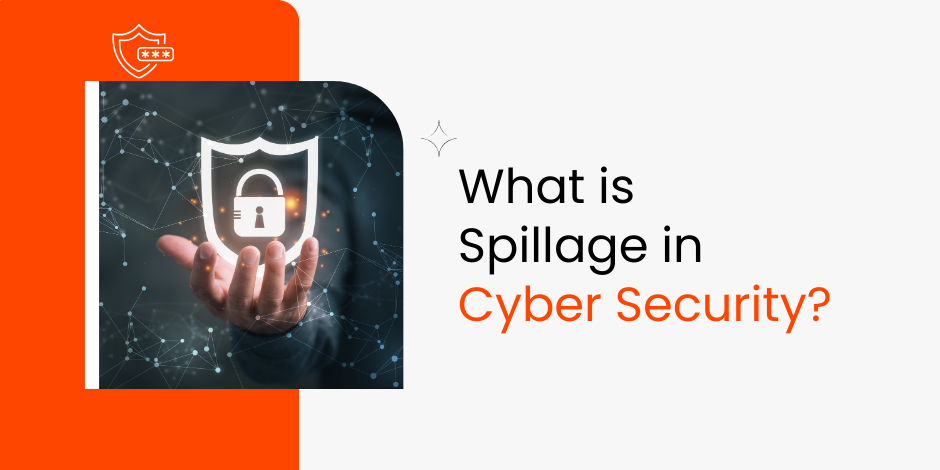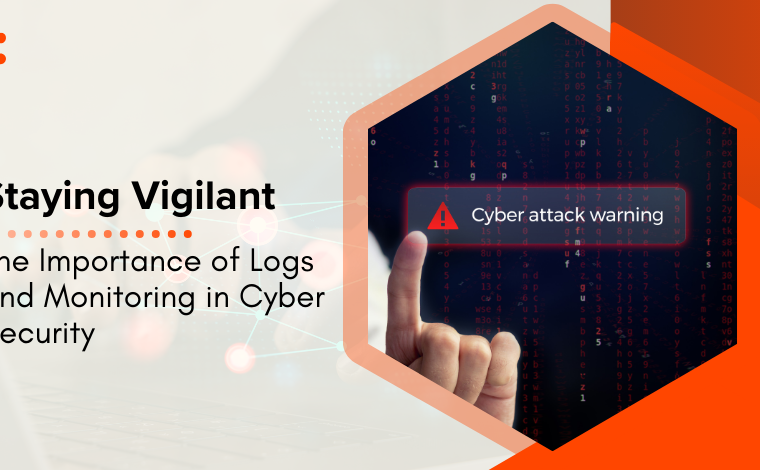What Is Spillage in Cybersecurity?

Stay Informed With Our Weekly Newsletter
Receive crucial updates on the ever-evolving landscape of technology and innovation.
Spillage in cybersecurity refers to the unauthorised or accidental disclosure, transfer, or dissemination of sensitive or classified information.
Understanding the concept of spillage in cybersecurity

Spillage in cybersecurity revolves around the unintentional or deliberate exposure of sensitive data or information.
Spillage can occur through various means, such as human error, system vulnerabilities, or cyberattacks. It is crucial to clearly understand spillage, its technical definition, and how it occurs in a cybersecurity context.
Cybersecurity is a constantly evolving field that aims to protect computer systems, networks, and data from unauthorised access, damage, or theft.
The technical definition of spillage
In cybersecurity, spillage is defined as the uncontrolled or unauthorised movement of data or information from a secure system or network to an unapproved location.
This can include the accidental transfer of sensitive information to an external entity, the intentional leaking of classified documents, or the unintended exposure of personal data due to a security breach.
Spillage can take many forms, from the accidental disclosure of confidential information to the deliberate exfiltration of sensitive data by malicious actors.
How spillage in cybersecurity occurs
Spillage can occur due to various factors, including system misconfiguration, software vulnerabilities, weak security controls, or human error.
System vulnerabilities and weak security controls can create opportunities for spillage incidents. Outdated software, misconfigured firewalls, or weak passwords can give cybercriminals easy access to sensitive information, leading to spillage.
Organisations must regularly update their systems, implement strong security measures, and conduct thorough risk assessments to identify and address potential vulnerabilities.
Cyberattacks, such as malware infections, ransomware attacks, or data breaches, can also result in spillage.
Sophisticated hackers can exploit system weaknesses to gain unauthorised access to sensitive data, which they can then exfiltrate or manipulate for their malicious purposes.
Organisations must invest in robust security solutions, including intrusion detection systems, encryption technologies, and employee awareness training to combat such threats.
The potential impact of spillage on organisations

The spillage of sensitive data can have significant consequences for organisations, both from a financial and reputational standpoint.
Understanding the risks associated with spillage incidents and their potential impact is crucial for developing effective prevention and response strategies.
Risks associated with data spillage
Data spillage poses various risks to organisations, including losing sensitive or proprietary information.
The exposure of such data can lead to intellectual property theft, compromise of trade secrets, or damage to a company’s competitive advantage.
Financial implications of spillage incidents
Spillage incidents can have substantial financial implications for organisations.
The cost of investigating and remediating the breach, implementing additional security measures, and notifying affected individuals can be considerable.
Preventing and mitigating spillage in cybersecurity
Preventing and mitigating spillage incidents requires a proactive approach encompassing robust security measures, employee awareness and training, and efficient incident response strategies.
Implementing best practices for spillage prevention and developing effective response strategies can help organisations minimise the risks and impacts associated with spillage.
Legal and regulatory aspects of spillage
Spillage incidents can have legal and regulatory implications for organisations.
Understanding the compliance issues related to spillage and the potential legal consequences of failing to prevent spillage is crucial for organisations to ensure they meet their legal obligations and avoid legal liabilities.
Organisations that fail to prevent spillage may face fines, reputational damage, or legal actions for non-compliance.
The legal consequences can include severe financial penalties, legal settlements, or loss of business opportunities.
The future of spillage in cybersecurity

The evolving cyber threat landscape necessitates continuous advancements in spillage prevention techniques.
By embracing emerging trends and leveraging technologies such as artificial intelligence, organisations can enhance their ability to identify, prevent, and respond to spillage incidents effectively.
Emerging trends in spillage prevention
Machine learning algorithms and artificial intelligence can aid in identifying abnormal data flows and patterns, enabling organisations to prevent spillage incidents more effectively.
Ongoing research and development in encryption, data leakage prevention, and security analytics are likely to contribute to the future of spillage prevention.
The role of artificial intelligence in managing spillage
Artificial intelligence (AI) can be pivotal in managing spillage incidents. AI-powered tools can analyse vast amounts of data, detect anomalies, and predict potential spillage risks.
By leveraging AI, organisations can automate threat detection and response processes, significantly reducing the time required to identify and mitigate spillage incidents.
Conclusion
Spillage in cybersecurity entails the unauthorised or accidental disclosure of sensitive information. Organisations need to understand the technical aspects of spillage, its potential impact, prevention strategies, and legal consequences.
By embracing emerging technologies and collaborating with cybersecurity experts, organisations can stay one step ahead in mitigating the risks associated with spillage incidents.
Are you ready to dive into the realm of cybersecurity? The Institute of Data offers programs designed to equip you with the skills and expertise you’ll need to succeed.
Whether new to tech or transitioning into this fascinating arena, our programs will deepen your knowledge with a curriculum tailored to current industry needs.
Want to learn more? Our local team is ready to give you a free career consultation. Contact us today!




